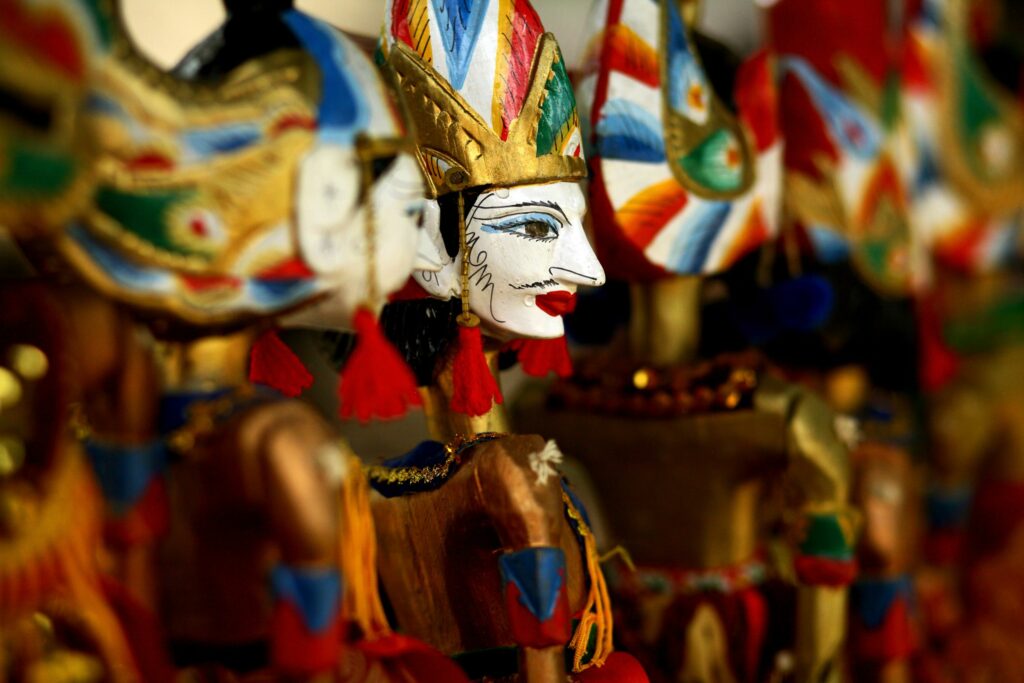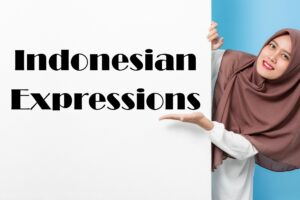Indonesia, an archipelago of over 17,000 islands, boasts a cultural landscape as diverse as its geography. Understanding Indonesian cultural habits not only enriches the experience of visitors and expatriates but also fosters a deeper appreciation for the country’s unique traditions. This guide delves into the core aspects of these habits: what they are, how they manifest in daily life, where they are most prominently observed, and the benefits they bring to individuals and society.
What are Indonesian Cultural Habits?
Indonesian cultural habits blend behaviors, practices, and traditions influenced by the country’s rich history, diverse ethnic groups, and religions. These habits encompass various activities, from social customs and communication styles to culinary traditions and religious ceremonies. Key aspects include the emphasis on community and family, respect for elders, and a harmonious balance between spiritual and worldly life.
How do Indonesian Cultural Habits Manifest?
- Language and Communication: Indonesian cultural habits are deeply embedded in the language and communication styles. The use of honorifics and different levels of speech in Bahasa Indonesia, depending on the social status and age of the people involved, reflects the culture’s respect for hierarchy and politeness.
- Art and Craftsmanship: Traditional arts like batik-making, wood carving, and weaving are not just crafts but also expressions of cultural identity and heritage. These activities, often passed down through generations, showcase the meticulousness and creativity inherent in Indonesian culture.
- Culinary Traditions: Indonesian cuisine, known for its diversity and rich flavors, reflects cultural habits. The preparation and sharing of food, especially during festivals and communal gatherings, symbolize unity and hospitality.
- Religious Practices: With many religions practiced across the archipelago, spiritual habits form a significant part of Indonesian culture. From Hindu ceremonies in Bali to Islamic practices in Sumatra and Java, these religious activities showcase the diversity and tolerance within Indonesian society.
- Social Etiquette and Customs: Indonesians emphasize social etiquette, including the customary greeting of ‘salam,’ a gentle handshake followed by bringing one’s hand to the heart. Such practices symbolize respect and goodwill.
- Family Structure and Values: The family is central to Indonesian society, with extended families often living together or nearby. This structure emphasizes care, respect for elders, and communal living.
- Festivals and Celebrations: Indonesian cultural habits shine during festivals and celebrations, each with unique customs, dances, and music. These events, such as the Balinese’ Nyepi’ or the Javanese ‘Wayang’ performances, are vibrant cultural pride and heritage displays.
- Agricultural Practices: In many rural parts of Indonesia, traditional farming practices are a window into the country’s cultural habits. For instance, rituals and ceremonies related to rice planting and harvesting show the deep connection between the people and the land.
- Community Involvement: ‘Gotong royong’ or communal cooperation is fundamental to Indonesian culture. This practice of working together for community projects like building houses or preparing for ceremonies reinforces communal bonds and shared responsibility.
- Attire and Dress Codes: Traditional Indonesian attire, such as the ‘kebaya’ and ‘batik,’ is not just clothing but a representation of cultural identity. Wearing these outfits during special occasions and ceremonies is a way to honor and preserve cultural heritage. The diversity in attire across different regions also reflects the rich cultural tapestry of the nation.
- Architecture and Living Spaces: The design of traditional houses, such as the ‘Rumah Gadang’ of the Minangkabau or the Balinese ‘Bale,’ is deeply influenced by cultural values and social structures. These living spaces, often built using local materials and techniques, reflect the harmonious relationship between humans, nature, and the spiritual world.
- Interpersonal Relationships: Indonesian cultural habits strongly influence interpersonal relationships. The concept of ‘rukun’ (harmonious living) governs interactions, emphasizing the importance of maintaining good relationships with neighbors and community members.
- Storytelling and Folklore: Oral traditions and folklore play a significant role in Indonesian culture. Stories passed down through generations are not only forms of entertainment but also mediums for imparting moral values and historical lessons.
- Martial Arts and Traditional Sports: Traditional martial arts like ‘Pencak Silat’ are more than physical activities; they embody cultural values such as discipline, respect, and spiritual strength. Similarly, traditional sports and games allow artistic expression and community engagement.
- Education and Learning: Educational practices in Indonesia, especially in rural and traditional communities, often incorporate cultural teachings and values. This approach ensures that cultural habits and knowledge are passed on to younger generations.
- Business and Work Ethic: Indonesian cultural habits extend to the business world, where practices like consensus decision-making (‘musyawarah untuk mufakat’) and a focus on relationship-building are prevalent. These habits highlight the importance of harmony and collective well-being in professional environments.
Where to Experience Indonesian Cultural Habits?
While these habits are pervasive throughout Indonesia, certain regions offer vibrant experiences. Bali, known for its Hindu traditions, provides a glimpse into elaborate religious ceremonies and artistic expressions. The Javanese culture is palpable in Yogyakarta, with its refined court customs and puppetry. With its Batak and Minangkabau communities, Sumatra showcases unique matrimonial customs and communal living structures.
Benefits of Indonesian Cultural Habits
By delving into and respecting Indonesian cultural habits, individuals can gain a richer, more nuanced understanding of the world, benefiting both personally and professionally.
- Enhanced Cross-Cultural Communication: Indonesian cultural habits encourage open-mindedness and adaptability, which are invaluable in today’s globalized world. Understanding these habits can lead to more effective cross-cultural communication and collaboration for students and professionals, particularly those involved in international settings.
- Tourism and Economic Growth: The unique cultural practices of Indonesia are a significant draw for tourists, contributing to the local economy. By preserving and promoting these habits, Indonesia can foster sustainable tourism that benefits the economy and the local communities.
- Personal Growth and Mindfulness: Many Indonesian cultural habits, such as emphasizing spiritual practices and community involvement, can lead to personal growth. These practices encourage mindfulness and a balanced lifestyle, which are increasingly sought after in the hectic modern world.
- Educational Opportunities: These habits offer rich educational opportunities, especially for students and researchers in fields like anthropology, sociology, and history. By studying Indonesian cultural practices, one can gain insights into the dynamics of a multicultural society and how traditions evolve.
- Strengthening Social Bonds: Indonesian habits like communal eating and cooperation in ceremonies (known as ‘gotong royong’) strengthen social bonds and foster a sense of belonging. This collaborative spirit can be especially beneficial in times of crisis, providing a solid support network.
- Preservation of Language and Art: Many Indonesian cultural habits are intertwined with the country’s diverse languages and artistic expressions. By practicing and valuing these traditions, Indonesia helps to preserve its linguistic and artistic heritage for future generations.
- Health and Well-being: Certain Indonesian practices, such as herbal medicine and traditional healing techniques, contribute to health and well-being. These practices, passed down through generations, offer natural and holistic approaches to healthcare.
- Promoting Tolerance and Diversity: Indonesia’s cultural habits, arising from a blend of ethnicities and religions, promote tolerance and appreciation for diversity. This understanding is crucial in fostering peace and coexistence in a multicultural society.
Conclusion
Exploring Indonesian cultural habits is a journey into the heart of the nation’s identity. These habits not only define the everyday life of the Indonesian people but also offer a window into the soul of this diverse and vibrant country. As you immerse yourself in these traditions, consider delving deeper by learning the Indonesian language. This enhances your understanding of the cultural nuances and connects you more intimately with the essence of Indonesia. Embrace the journey and let the rich Indonesian customs and traditions tapestry enrich your perspective.


